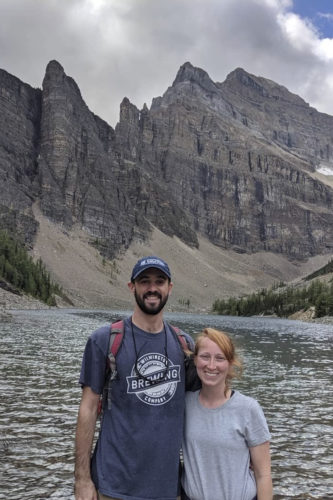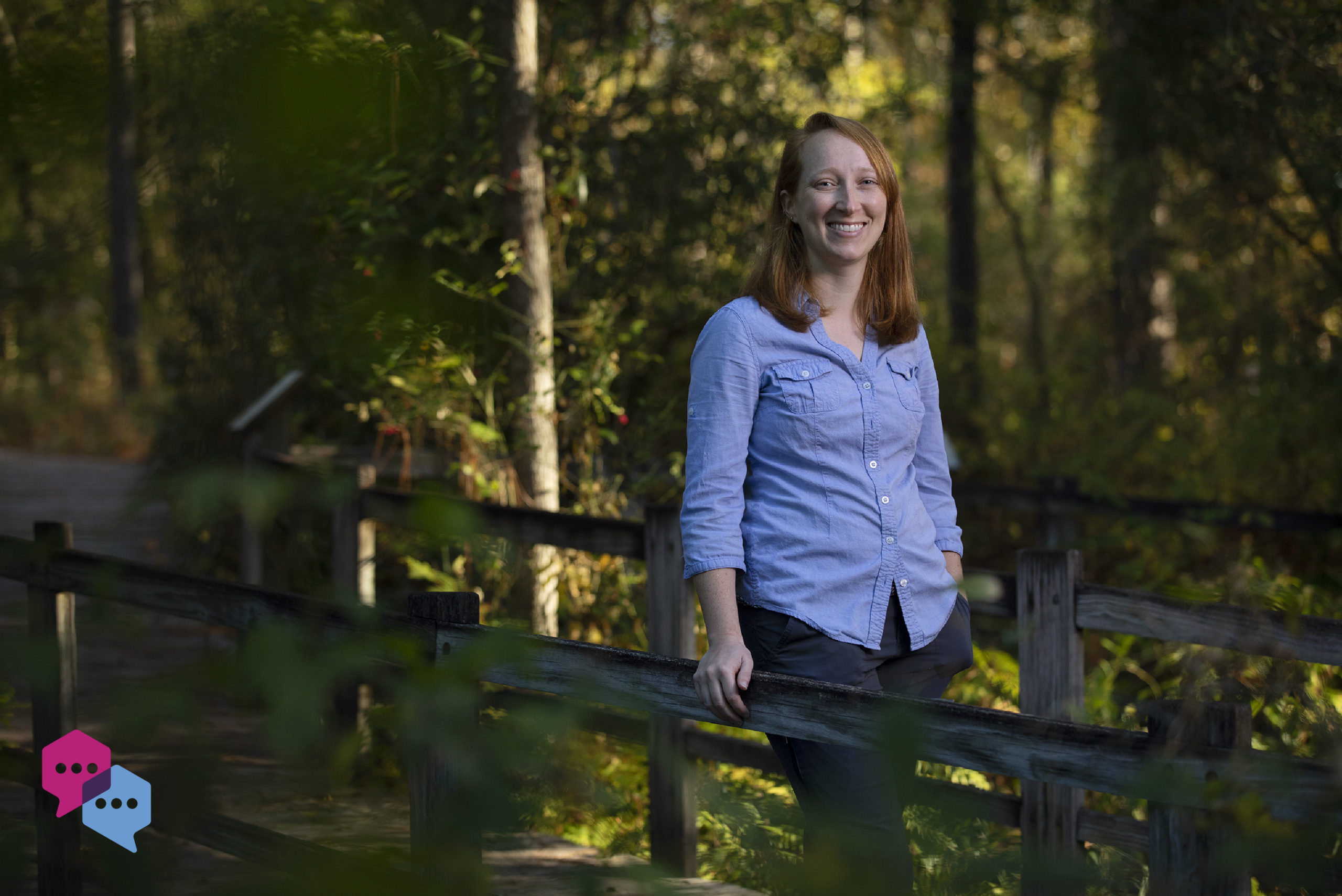Q: When you were a child, what was your response to this question: “What do you want to be when you grow up?”
A: I was curious about a lot as a child, and I’m still a very curious adult. Some of my answers included a chef, an FBI agent, a veterinarian, and a zoologist — I loved the kid show “Zoboomafoo.” I was all over the place, but I think I always knew I wanted to be very active. My work now is very active, and I love that aspect of it.
Q: Share the pivotal moment in your life that helped you choose your field of study.
A: During the first two years of my undergraduate degree, I was majoring in music and enrolled in a biology class to fulfill a curriculum requirement. It sparked my interest in science, and I decided to take more natural science classes. Mid-sophomore year, I switched my major to biology. In my last two years, I completed a research project investigating the ecology of a rare plant species called Helonias bullata, commonly called swamp pink. Studying this plant and learning about the threats that native species face was the catalyst for my decision to continue studying plants and to pursue a career in native plant conservation. I was determined to do everything I could to better understand native plants and to advocate for their protection in natural areas.

Marzolf and her husband Nick enjoy hiking together and recently visited the Canadian Rocky Mountains.
Q: Tell us about a time you encountered a tricky problem. How did you handle it and what did you learn from it?
A: When working with nature, you must come up with solutions on the spot. The equipment that I have worked with in the past is not very complicated and most of the time is something made in the lab such as a piece of PVC pipe used to measure vegetation. The reason to use something like this is because it is consistent and can be easily carried in the field through dense vegetation and, if you leave it behind, you can typically recreate it in some way with whatever materials you have. It’s not uncommon to be out in the field several miles away from the office when you discover you’ve forgotten a piece of equipment, but you still need to get the work done. The plants aren’t going to hold off on dropping their seed or extend their flowering time to wait on you to come back next week when you’re prepared.
Q: Describe your research in 5 words.
A: Fostering seeds for the future.
Q: What are your passions outside of research?
A: I enjoy baking. I always loved baking with my mom when I was a kid. I am not even close to being as awesome as her, but I love trying different recipes. I’m also obsessed with the “Great British Baking Show,” but who isn’t — am I right?
I’m also curious about birds and their behavior, so bird watching is one of my favorite things to do outside of work. I thought that I wanted to research birds at one point, but decided they move around too much and that makes them difficult to identify. It was too much pressure. Now I just watch them and try to identify for fun.


